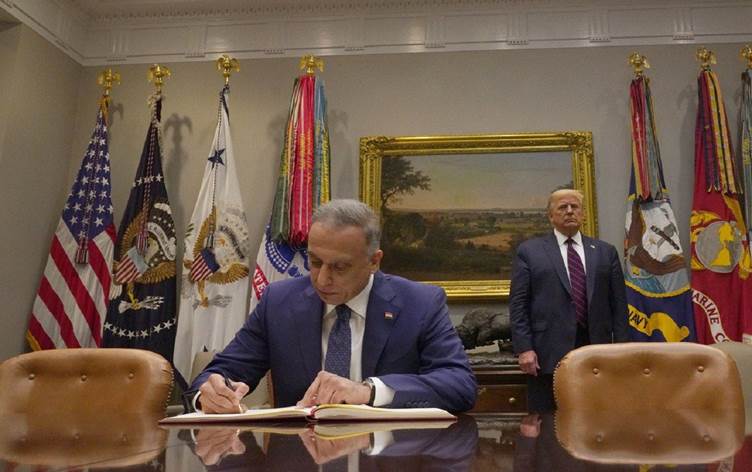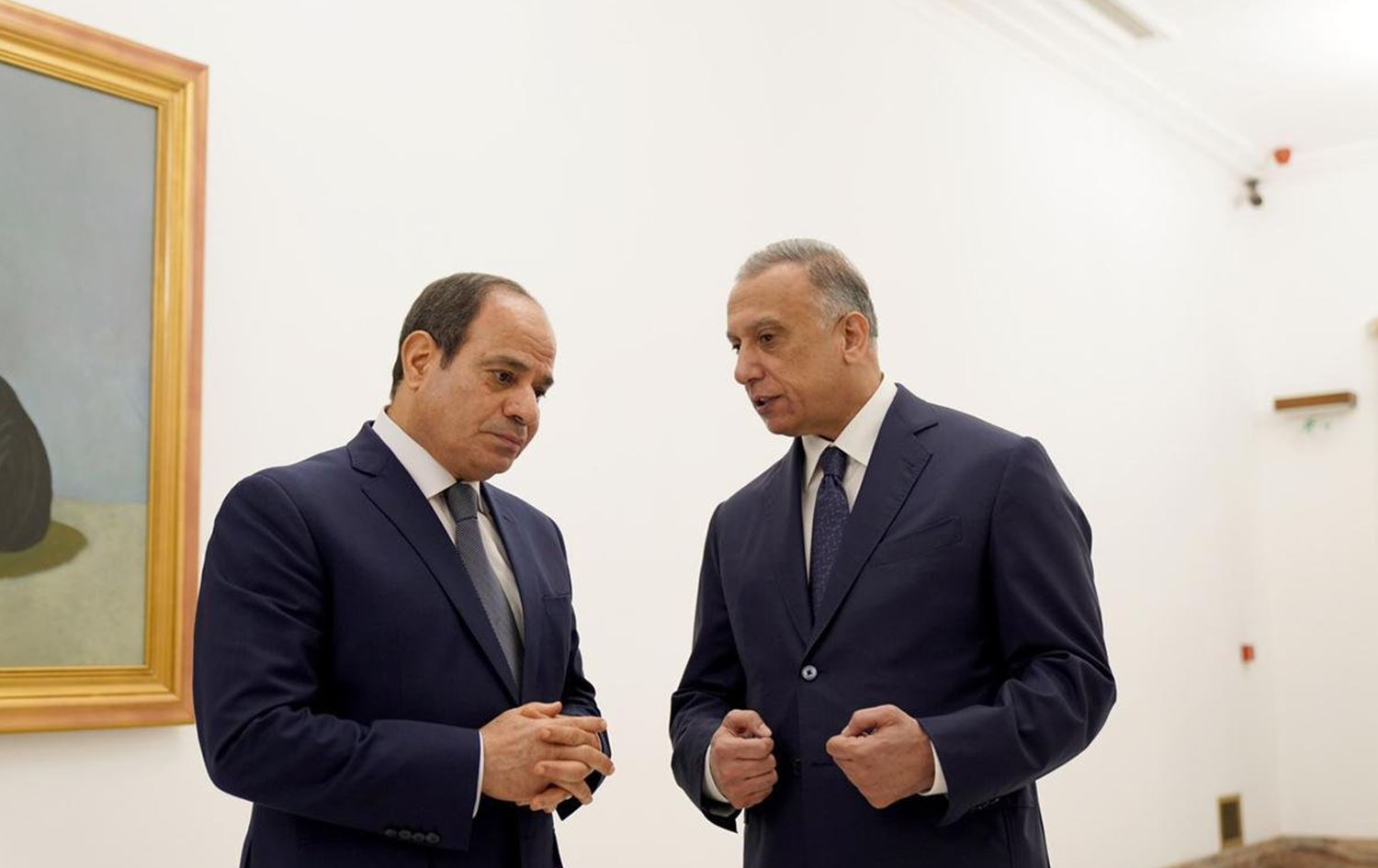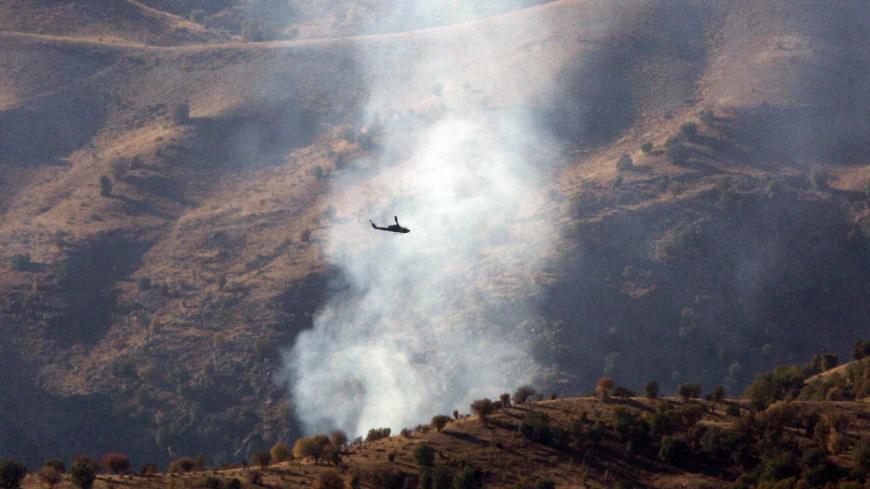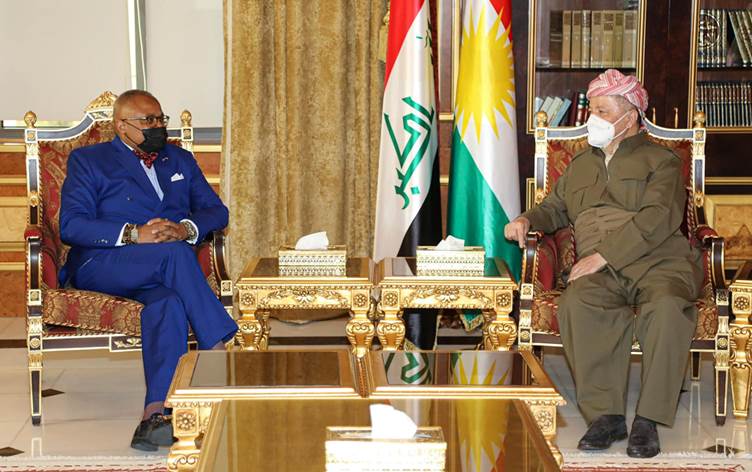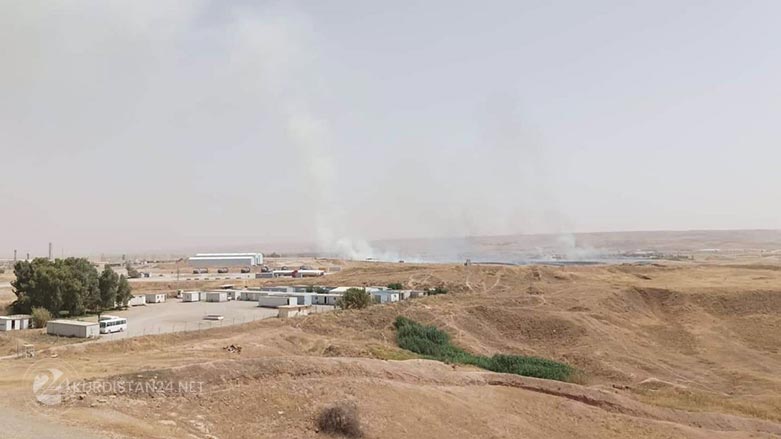Shkoi Kurdistan-
US and Iraqi military coordination against remnants of the Islamic State (ISIS) group will continue, say top leaders from the two countries, despite pressure from Iran-backed political parties for the expulsion of US troops from Iraq.
“We [the US and Iraq] continue to work in close coordination to ensure that ISIS is rendered incapable of posing a threat to Iraq and every other nation,” reads a joint statement from US President Donald Trump and Iraqi Prime Minister Mustafa al-Kadhimi published early Friday following their much anticipated meeting in Washington DC.
“We reaffirm our commitment to long-term security cooperation to build Iraq’s military capability and address threats to our shared interests,” it adds.
At a press conference following Thursday’s meeting, Trump assured that US troops would be “leaving shortly,” deferring to US Secretary of State Mike Pompeo, who said they would depart “as soon as we complete the mission.” The President had said at a different press conference the previous day that the US is withdrawing “rapidly over the course of three years.”
US forces were invited back to Iraq in 2014 by the Iraqi government in order to oust ISIS, which had seized large swathes of territory across Iraq and Syria. There are roughly 5,000 US troops stationed in Iraq advising and assisting Iraqi and Kurdish forces in the fight against ISIS remnants.
The ousting of US troops from Iraq has been a demand of Shiite political parties backed by Iran for years. Calls intensified after the assassination of top Iranian commander Qassim Sulaimani, and Abu Mahdi al-Muhandis, commander of Popular Mobilization Forces (PMF, also known as Hashd al-Shaabi in Arabic) in a US airstrike in Baghdad early January.
Prior to his visit to Washington, Kadhimi met with the Iran-backed Fatih coalition, where the Shiite parties stressed that they would not budge on their demand for a US troop withdrawal.
“The Fatih coalition informed Kadhimi that the [decision for the] exiting of the foreign forces from Iraq is irreversible,” Ahmed al-Assadi, head of al-Sanad bloc, which is a part of the Fatih coalition inside Iraqi parliament, told state-media late Monday, referring to a January non-binding vote in Iraqi parliament to expel US forces.
The Iran-backed Islamic Front for Resistance (al-Muqawama) group in Iraq released a statement on Friday regarding Kadhimi’s visit to Washington and the security consensus between the two countries.
“We [the resistance forces] were waiting for the Prime Minister’s visit to America to achieve the demand of the Iraqi people, which is expelling the American troops from our country, but what we saw instead was more expansion of US influence in Iraq,” the statement reads.
“The visit of Prime Minister [to Washington] did not include the expulsion of the American invader troops from Iraq completely…so we as resistance forces will no longer wait for the strategic dialogue, but instead we will start to target all American interests in Iraq, and create an earthquake under their troops in Iraq, even if they move far away from our cities,” it adds.
Some of the resistance forces are under the umbrella of PMF, a group of Shiite majority of fighters created in 2014 following a fatwa, or religious call to action, from Iraq’s highest Shiite religious authority, Ayatollah Ali al-Sistani, in response to the ISIS insurgency.
Although the PMF has been brought under the umbrella of the official Iraqi Security Forces (ISF), and measures have been taken to fully integrate the units into Iraq’s military apparatus, the PMF continues to act independently. Many PMF units and factions maintain close ties with Tehran.
Turkey’s bombardment of Iraq and the Kurdistan Region
Rudaw’s correspondent to Washington asked both Kadhimi and Trump on Friday about the future of the Turkish incursion into Kurdistan region of Iraq, in response Trump said that they would consider engaging if Baghdad sends an official request.
“Iraq has to make a definite request, of course I will listen to the Prime Minister, if he makes the request, and then we will look at the request,” Trump told Roj Ali Zalla, Rudaw’s correspondent in Washington on Friday.
Kadhimi answered the question by saying “of course, we reject Turkey’s incursion on Iraq, and the Iraqi constitution does not allow Iraq to become a threat to any of our neighbors.”
“We [the Iraqi government] have talks with Turkey to rectify the situation and I am anxious to resolve the issue [Turkish bombardments] which deals with the sovereignty of Iraq and I know that the Turks are taking into account the situation in Iraq,” Kadhimi continued.
Turkey launched its current air and land offensive in the Kurdistan Region in mid-June, with the stated aim of removing the Kurdistan Workers’ Party (PKK) fighters from border areas. Operations have focused on areas in Duhok province’s Zakho region, Sulaimani’s Sharbazher district and Erbil’s Soran district where villagers living in the mountains have borne the brunt of Turkey’s bombing.
Eight civilians have been killed and many villages have been abandoned since mid-June.
The PKK, an armed Kurdish group seeking greater cultural and political rights for Kurds in Turkey, has been in conflict with Ankara for decades. At least 5,000 people have been killed in clashes and attacks since peace efforts failed in July 2015, according to the International Crisis Group. The group has its headquarters in the Kurdistan Region of Iraq’s Qandil mountains.
